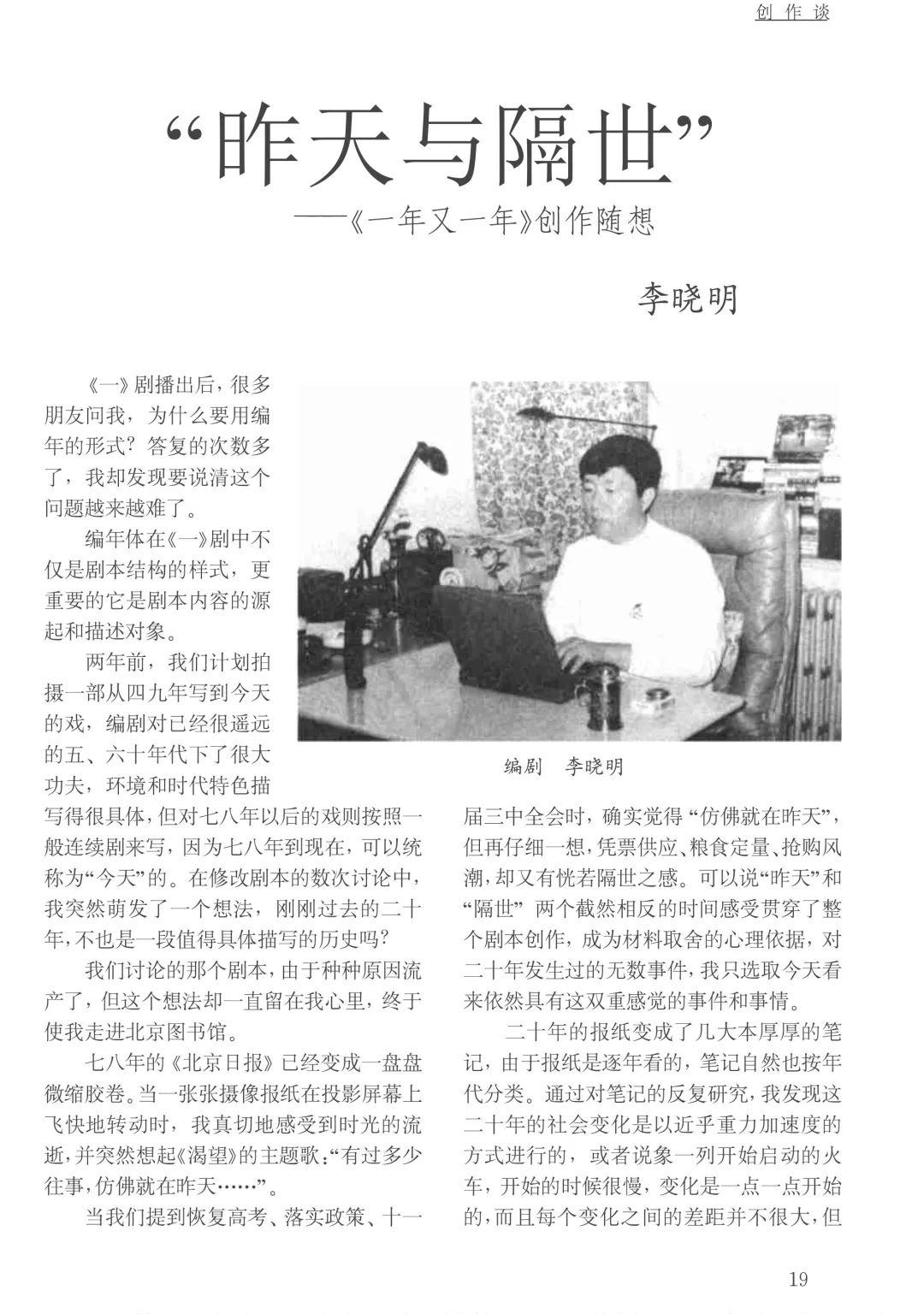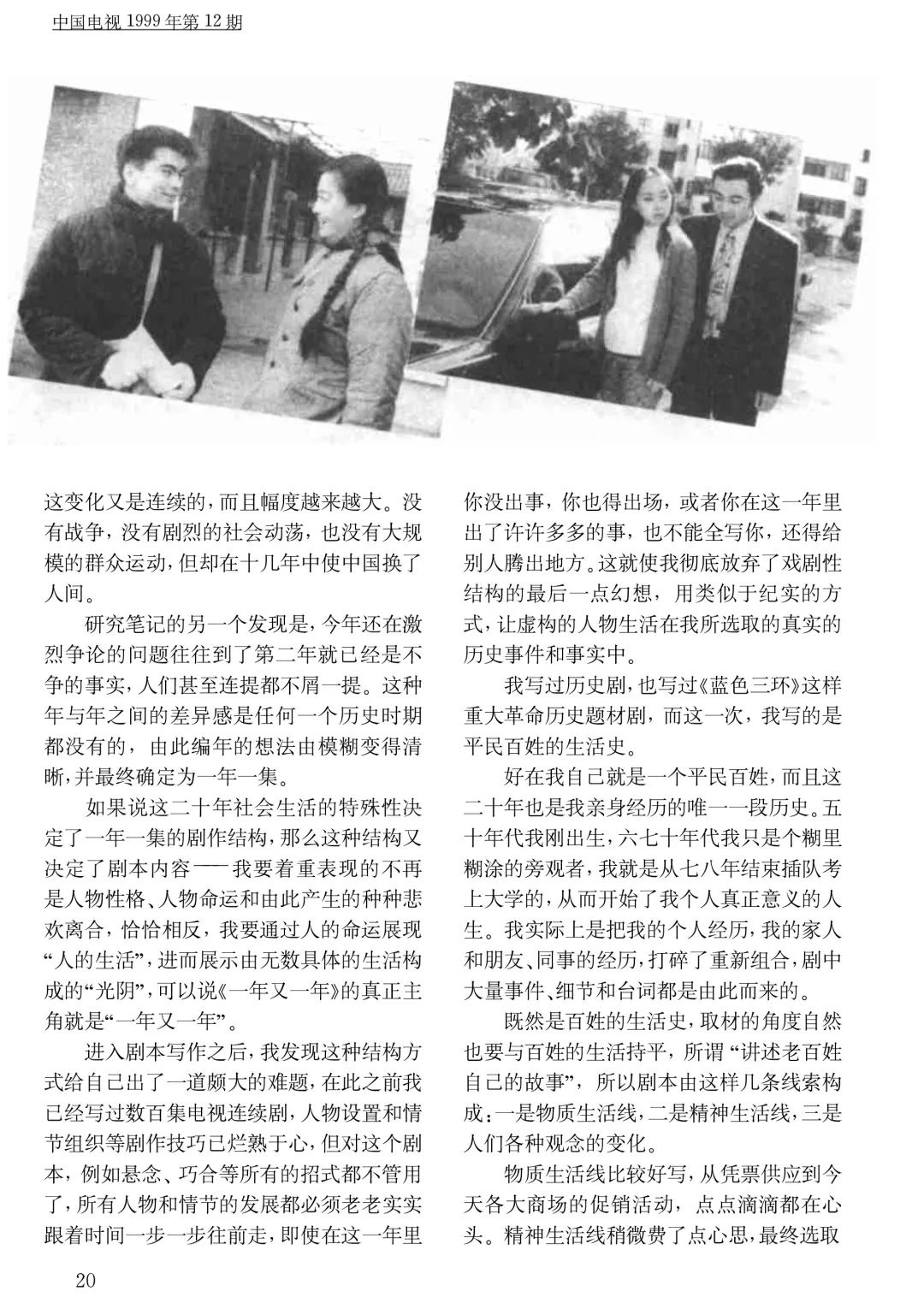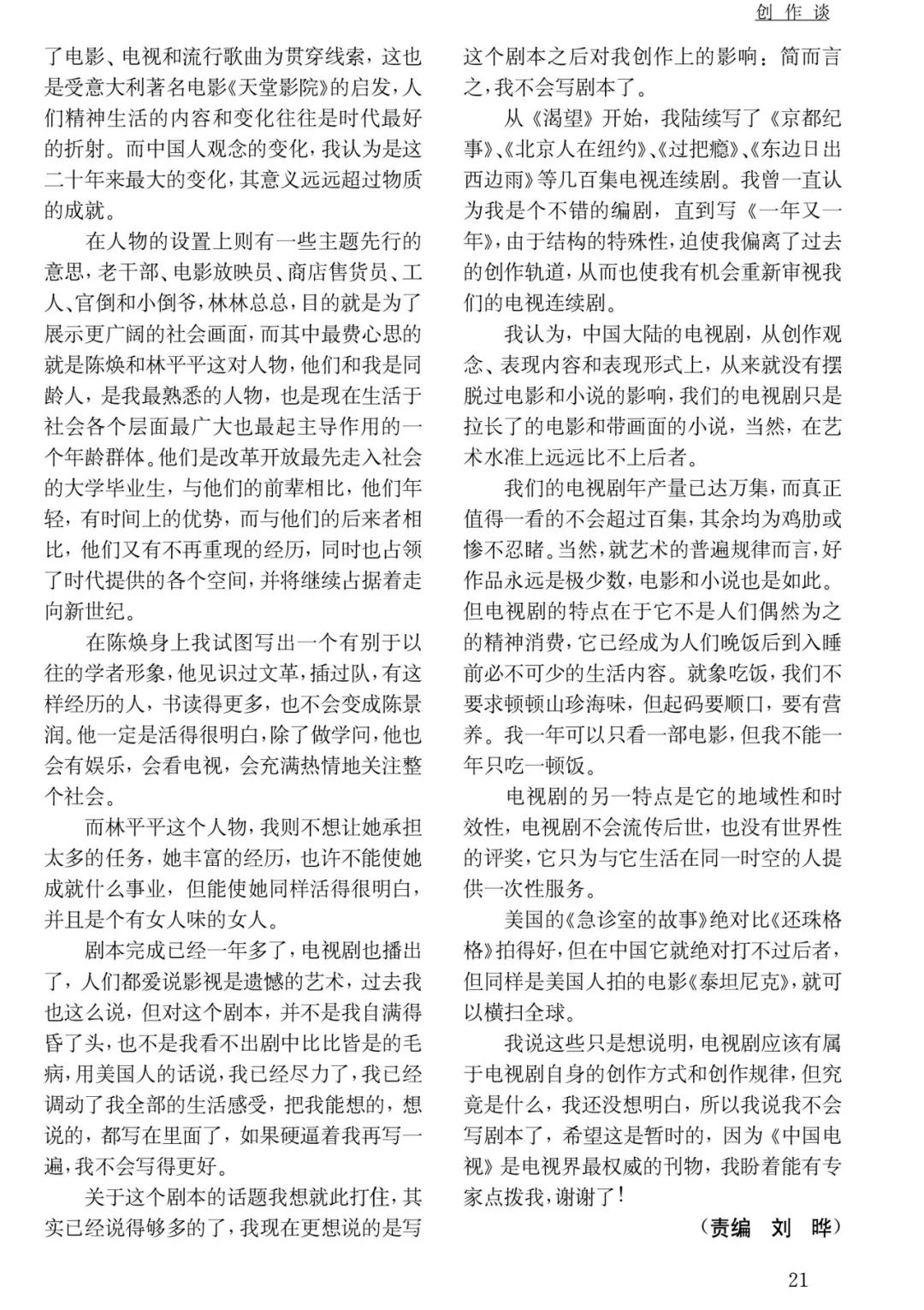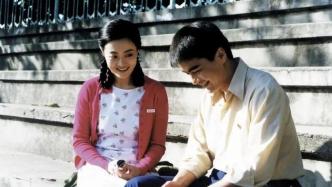
"Year after Year", which is currently being broadcast on the "Revisiting Classics" channel, is China's first chronological TV series. The drama tells the story of the family of film projectionist Chen Fulin and the family of Lin Hanmin, who have experienced the spiritual and material shocks and baptisms brought about by the great social changes over the past 20 years. It won the third prize for long-form TV series at the 20th China TV Drama "Flying Apsaras Award".
As a famous screenwriter who has created China's first indoor drama "Desire" and popular TV series such as "Beijingers in New York" and "Getting High", what clever ideas does Li Xiaoming have when facing the creation of another "first"? Why is the real protagonist of the play "Year after Year"? Please review the screenwriter Li Xiaoming's creative thoughts published in the 12th issue of "China Television" in 1999.
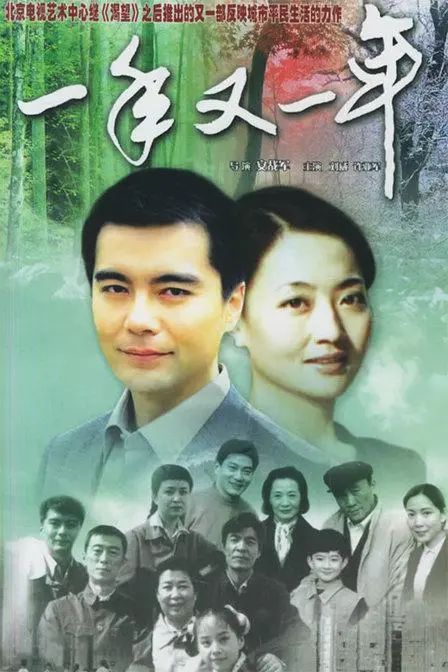
origin:
Highlighting the dual sense of "yesterday" and "another world"
After the show was broadcast, many friends asked me why I chose the chronological format. As I answered this question many times, I found it increasingly difficult to explain it clearly.
The chronological style in this play is not only the style of the script structure, but more importantly it is the source and description object of the script content.
When we talked about the resumption of the college entrance examination, the implementation of policies, and the Third Plenary Session of the 11th Central Committee, it really felt like "it was just yesterday", but when we think about it more carefully, the supply by ticket, the rationing of food, and the panic buying, it feels like a lifetime ago. It can be said that the two completely opposite time feelings of "yesterday" and "another lifetime" run through the entire script creation and become the psychological basis for the selection of materials. Among the countless events that have occurred in the past 20 years, I only selected events and things that still have this dual feeling today.
If the social life of these twenty years determines the structure of one episode per year, then this structure also determines the content of the script - I will no longer focus on the characters' personalities, their fates, and the various joys and sorrows that arise from them. On the contrary, I want to show "people's lives" through their fates, and then show "time" composed of countless specific lives. It can be said that the real protagonist of "Year after Year" is "Year after Year".
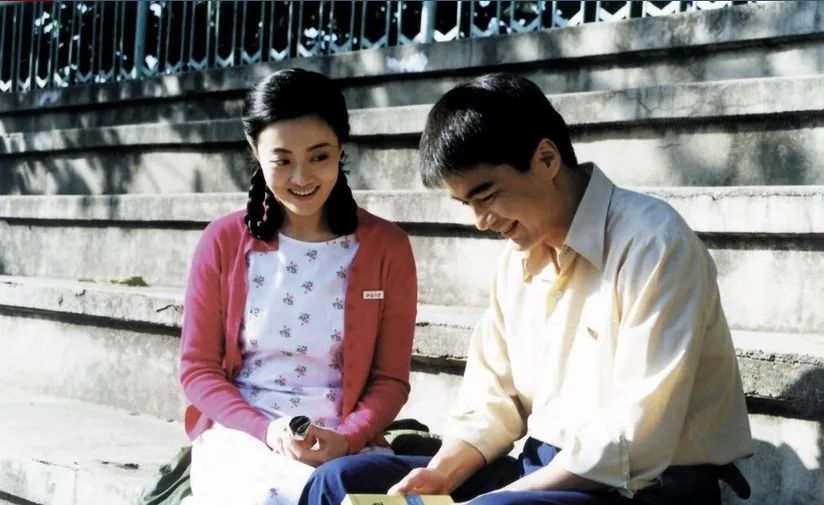
Concept:
"Telling the stories of ordinary people themselves", it is very challenging to write a good spiritual life line
After I started writing the script, I found that this structure posed a big problem for me. Before that, I was already familiar with drama techniques such as character setting and plot organization, but for this script, all the tricks such as suspense and coincidence were useless. The development of all characters and plots had to go forward step by step with the passage of time. This made me completely give up the last bit of fantasy of dramatic structure, and use a documentary-like method to let the fictional characters live in the real historical events and facts I selected.
I have written historical dramas and major revolutionary dramas such as "Blue Three Rings". This time, I wrote about the life history of ordinary people. Since it is the life history of ordinary people, the angle of the material should naturally be on par with the lives of ordinary people, so-called "telling the stories of ordinary people themselves", so the script consists of several clues: one is the material life line, the second is the spiritual life line, and the third is the changes in people's various concepts.
The material life line is relatively easy to write, from the supply of tickets to the promotional activities of major shopping malls today, every detail is in my mind. The spiritual life line took a little more thought, and finally I chose movies, TV and pop songs as the thread, which was also inspired by the famous Italian movie "Cinema Paradiso". I think the change in Chinese people's concepts is the biggest change in the past 20 years.
The characters are set with some themes in mind - old cadres, movie projectionists, shop assistants, workers, officials and small traders, and so on, in order to show a broader social picture. The most elaborate pair is Chen Huan and Lin Pingping, who are my peers, the people I am most familiar with, and the age group that is the largest and most dominant in all aspects of society.
In Chen Huan, I tried to write a scholar who was different from the previous ones. He read more books, but he would not become Chen Jingrun. He must live a very clear life. In addition to studying, he also has entertainment, watches TV, and pays attention to the whole society with enthusiasm. As for the character Lin Pingping, I didn't want her to take on too many tasks. Her rich experience may not enable her to achieve any career, but it can make her live a very clear life.
Retrial:
TV drama creation should be nutritious
Starting with Desire, I wrote several hundred episodes of TV series such as Kyoto Chronicle, Beijingers in New York, Addicted to Sex, and Sunrise in the East and Rain in the West, until Year After Year. The special structure forced me to deviate from the past creative track, and also gave me the opportunity to re-examine our TV series.
I think that Chinese TV dramas have not yet gotten rid of the influence of movies and novels in terms of creative concepts, content and form of expression. Although good works are always rare, the same is true for movies and novels. But the characteristic of TV dramas is that they are not people's occasional spiritual consumption, they have become an indispensable part of people's lives from dinner to bedtime. Just like eating, we don't require delicacies from the mountains and the sea every day, but at least they should be smooth and nutritious. I can watch only one movie a year, but I can't eat only one meal a year. Another characteristic of TV dramas is their regionality and timeliness. TV dramas will provide services for people who live in the same time and space as them. TV dramas should have their own creation methods and creation rules.
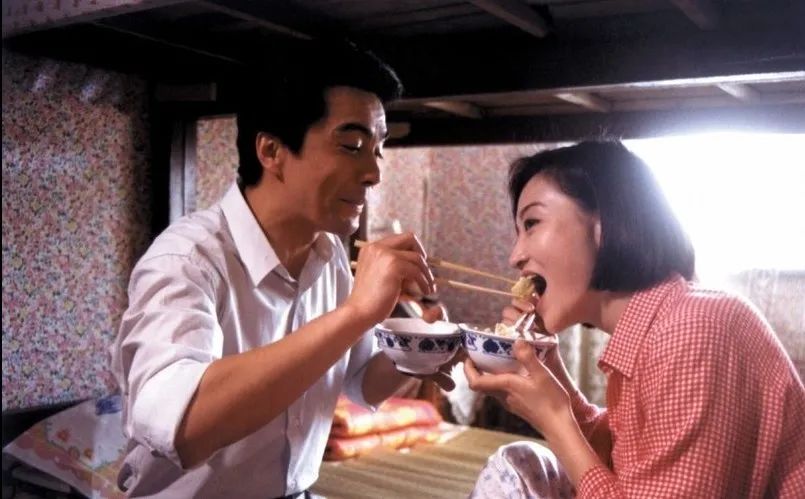
Appendix: Original text of "Yesterday and the Past" - Thoughts on the Creation of "Year After Year" in "China Television" magazine, issue 12, 1999
